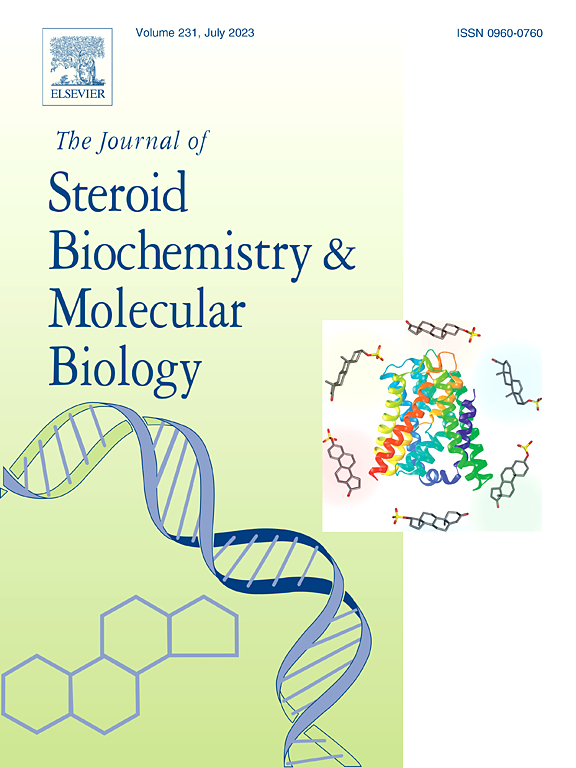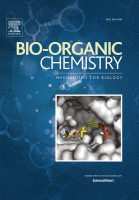Epicatechin
How to submit an article:
- Registered users can submit any published journal article that has a unique DOI (Digital Object Identifier) name or link to Research Hub.
- For example, you can paste the full DOI link:
https://doi.org/10.1109/5.771073or just the DOI name:10.1109/5.771073into the field above and click submit. - The person who is first to submit a valid article to Research Hub will forever be credited for it, and every article submission earns you +6 Research Points.
Published research studies are articles that present the findings of original research that has undergone a peer-review process and has been made publicly available in scholarly journals, books or other media.

(-)-Epicatechin acts as a potent agonist of the membrane androgen receptor, ZIP9 (SLC39A9), to promote apoptosis of breast and prostate cancer cells
2021 Jul The Journal of Steroid Biochemistry and Molecular Biology Thomas P, Dong J
Results of the present study provide clear evidence that the catechins, (-)-epicatechin and (+)-catechin have high binding affinities for the membrane androgen receptor, ZIP9, and modulate ZIP9-dependent signaling and apoptotic functions in nuclear androgen receptor-null prostate and breast cancer cells. This indicate (-)-epicatechin is a potent ZIP9 agonist in breast and prostate cancer cells.
Network Pharmacology Green Tea EGCG Epicatechin Breast Cancer Prostate Cancer
Inhibition of Aβ aggregates in Alzheimer’s disease by epigallocatechin and epicatechin-3-gallate from green tea
2020 Dec Bioorganic Chemistry Chen T, Yang Y, Zhu S, Lu Y, Zhu L, Wang Y, et al.
Experimental Study Animal Study Green Tea Alzheimer's Disease EGCGGreen tea polyphenolic compounds, (-)-epigallocatechin (EGC) and (-)-epicatechin-3-gallate (ECG), can diminish harmful Alzheimer's disease linked Aβ aggregates and ameliorate symptoms.

Could grape-based food supplements prevent the development of chronic kidney disease?
2019 Oct 21 Critical Reviews in Food Science and Nutrition Zhu J, Du C
It has been shown that grape-based antioxidants have beneficial effects on chronic metabolic diseases such as diabetes and hypertension, and may also prevent the development of CKD and cardiovascular disease.
Review Article Grapes Chronic Kidney Disease
The Impact of Epicatechin on Human Cognition: The Role of Cerebral Blood Flow
2018 Jul 27 Nutrients Haskell-Ramsay C, Schmitt J, Actis-Goretta L
Cerebral Blood Flow Cocoa Cognitive Function MemoryThe consumption of epicatechin, plentiful in foods like cocoa, positively influences memory, executive function, and processing speed, particularly in older adults.
Research insights are moderated by the Research Hub team and offer an at-a-glance overview of interesting research findings.

2020 Bioorganic Chemistry
Green tea polyphenolic compounds, (-)-epigallocatechin (EGC) and (-)-epicatechin-3-gallate (ECG), can diminish harmful Alzheimer's disease linked Aβ aggregates and ameliorate symptoms.
Experimental Study Alzheimer's Disease EGCG Green Tea
Inhibition of Aβ aggregates in Alzheimer’s disease by epigallocatechin and epicatechin-3-gallate from green tea
Chen T, Yang Y, Zhu S, Lu Y, Zhu L, Wang Y, et al.

2018 Nutrients
The consumption of epicatechin, plentiful in foods like cocoa, positively influences memory, executive function, and processing speed, particularly in older adults.
Cerebral Blood Flow Cocoa Cognitive Function Memory
The Impact of Epicatechin on Human Cognition: The Role of Cerebral Blood Flow
Haskell-Ramsay C, Schmitt J, Actis-Goretta L
Review Articles
Review articles summarise and critically evaluate the current state of research on a specific topic or field by synthesising multiple primary research studies.
Clinical Trials
Clinical trials are research studies that involve people and are conducted to evaluate the safety and efficacy of new treatments or interventions, such as drugs, medical devices, or behavioural therapies.
Study Protocols
Published study protocols are detailed plans that outline the objectives, methodology, statistical analyses, and organisation of a research study that have been made publicly available for others to review and use as a reference.
Presentation Slides

Experimental Study
Green tea polyphenolic compounds, (-)-epigallocatechin (EGC) and (-)-epicatechin-3-gallate (ECG), can diminish harmful Alzheimer's disease linked Aβ aggregates and ameliorate symptoms.
Chen T, Yang Y, Zhu S, Lu Y, Zhu L, Wang Y, Wang X

The consumption of epicatechin, plentiful in foods like cocoa, positively influences memory, executive function, and processing speed, particularly in older adults.
Haskell-Ramsay C, Schmitt J, Actis-Goretta L
Executive Summary
Write an executive summary in the form of a blog article on the topic of "Research into Chinese medicine treatment for Epicatechin" summarising the research below and using language that can be easily understood by patients and avoiding medical jargon using a professional and caring tone of voice.
Write an executive summary in the form of a blog article on the topic of "Researched Chinese medicine treatments for Epicatechin" summarising the research below in an objective and easy to understand way, and using language that can be easily understood by patients. Group the article into Chinese medicine treatments first, followed by nutrition and other treatments. Avoid using medical jargon and use a professional and caring tone of voice.
Write me a concise but easy to understand executive summary on the topic of "Chinese medicine treatments for Epicatechin" based on the following research that I will give you. Your summary should be 2 paragraphs long in Australian English spelling and include references to the studies.
A Experimental Study published in 2020 in the journal Bioorganic Chemistry found that Green tea polyphenolic compounds, (-)-epigallocatechin (EGC) and (-)-epicatechin-3-gallate (ECG), can diminish harmful Alzheimer's disease linked Aβ aggregates and ameliorate symptoms. Green tea compounds EGC and ECG were tested for their effects on Cu/Zn-induced or self-assembled Aβ aggregation involved in Alzheimer's disease. To do so, a combination of thioflavine T fluorescent spectrometry, inductively coupled plasma mass spectrometry, UV-Vis spectroscopy, transmission electron microscopy, silver staining, immunohistochemistry, and immunofluorescence assays were utilized. Findings indicate that these compounds bind mildly to Cu and Zn and reduce their caused or self-assembled Aβ aggregates. Moreover, these compounds were shown to manage neurotoxicity in mouse neuroblastoma Neuro-2a cells by decreasing the production of reactive oxygen species (ROS). From the findings, the EGC and ECG in green tea showed potential in reducing the toxicity of Aβ oligomers and fibrils which are heavily linked to Alzheimer's disease. Notably, ECG has the ability to traverse the blood-brain barrier and reduce Aβ plaques within the mouse brain, showcasing its potential for neuron protection. This study highlights the potential of green tea - specifically, its polyphenolic compounds - in the prevention or reduction of Alzheimer's disease symptoms.
A published in 2018 in the journal Nutrients found that The consumption of epicatechin, plentiful in foods like cocoa, positively influences memory, executive function, and processing speed, particularly in older adults. Methodology: The research design for this paper was anchored on the use of intervention studies. These are intensive studies purposed to test breakthrough methodologies or practices on a select group of participants. In this case, the intervention was the ingestion of epicatechin, a compound found largely in cocoa. The subjects monitored were mostly from a more mature demographic, aged 50 years and above. The studies selected for review were those that lasted a minimum of 28 days to ensure an adequate examination period and only those which had a daily epicatechin dose exceeding 50 mg. Discussion of Results: The paper notes an appreciable improvement in the cognitive performance in those subjects who consumed diets high in epicatechin. More specifically, there was an enhancement in memory, executive function, and processing speed. Trends showed that these benefits were more conspicuous in studies which offered more than 50 mg of epicatechin daily, and ran for at least 28 days. The results were particularly noteworthy in the elderly population, where all participants showed cognitive improvement. The impact of epicatechin on cerebral blood flow, however, could not be definitively proved and the results suggest its role requires further exploration. Additionally, the synergistic effects of epicatechin with other dietary elements also complicated the ability to attribute the cognitive improvement to this compound alone.
Moderation Tools
Topic
Sign In
Users not signed in are limited to viewing the 5 most recent items of content.